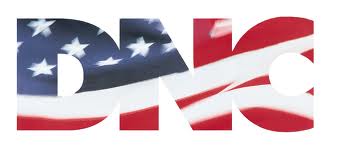The International Baccalaureate Programme was founded in 1968 in Geneva, Switzerland, by Alec Peterson. According to the IBO.org website Alec Peterson “was born in Edinburgh in 1908 and entered the teaching profession in 1932. During the Second World War Peterson was deputy-director of psychological warfare (writer’s italics) for South-East Asia Command, serving on Lord Mountbatten’s staff; and from 1952-54 he was director general of information services during the Malaysian emergency. This military background was to provide him with contacts at the highest levels–contacts that greatly assisted the acceptance of the IB by ministries of education and governments.” Its mission is to create a better world through education. In 2010 it implemented a five year strategy to establish its leadership in international education.
Although IB began as a secondary level education program, they now have three programs: the Primary Years Programme (PYP) beginning with children aged 3 to 12; the Middle Years Programme (MYP) for children from 11 to 16 years old; and the Diploma Programme (DP) for students from 16 through 19 years old.
The IB has been recognized as a non-government organization (NGO) of UNESCO since 1970 and currently has the status of “formal consultative relations as a network” with UNESCO. Representatives from IB participate regularly in UNESCO meetings and comment on UNESCO proposals in education in their Education for All initiative. Although the IB programme initially began in private schools, today over half of all IB World Schools are state schools.
The United Nations Educational, Scientific and Cultural Organization (UNESCO) was established on November 16, 1945. The goal of this organization is to work “to create the conditions for dialogue among civilizations, cultures and peoples, based upon respect for commonly shared values. It is through this dialogue that the world can achieve global visions of sustainable development encompassing observance of human rights, mutual respect and the alleviation of poverty, all of which are at the heart of UNESCO’s mission and activities.”
Today the IB has over 940,000 students in 3256 schools in over 140 countries. In the United States, the Primary Years Programme is in 280 schools, the Middle Years Programme is in 445 schools, and the Diploma Programme is in 751 schools.
According to the IB website
“The International Baccalaureate aims to develop inquiring, knowledgeable and caring young people who help to create a better and more peaceful world through intercultural understanding and respect”. In addition, “these programmes encourage students across the world to become active, compassionate and lifelong learners who understand that other people, with their differences, can also be right.”
Students in the IB Programme experience a rigorous course of study, with a focus on the global community and their responsibility to the world as a global citizen. Their education focuses not only on the basics, but on the cultivation of the “international-mindedness” of the student. The IB espouses the principle of educating “the whole person for a life of active, responsible citizenship.” The core philosophy of the IB Programme is the “Theory of Knowledge” (TOK). This theory essentially questions everything, starting with the basic “How do we know?” It encourages a child to question prior core factual knowledge. If, for instance, a consensus agrees that 2 + 2 = 5 then it must be true.
Students participating in the IB Programme are not assessed by their local schools. There are over 10,500 examiners and moderators who assess their work and are located all over the world.
The current Chair of the IB Board of Governors is Carol Bellamy. Prior to this position she was President and CEO of World Learning, a private, nonprofit organization promoting international understanding through education and development in over 70 countries. She was an executive director of UNICEF from 1995 until 2005 and was also the first former volunteer to become Director of the Peace Corps, appointed to the position by President Clinton. She had also worked at the financial institutions Bears Stearns and Morgan Stanley. She was elected as New York State Senator in 1972 and was elected as the first female president of the New York City Council in 1977. In 2007 she was elected Chair of the Board of Directors of the Fair Labor Association, which protects workers rights and working conditions based on international labor standards. On February 18, 2011 Bellamy was named Chair of the Alliance for Ethical International Recruitment Practices, a non-profit created to ensure that recruitment of foreign-educated health professionals to the United States is ethical, responsible and transparent.
The International Baccalaureate Programme is selecting our best and brightest children at the most impressionable time in their lives to indoctrinate them into becoming good “global citizens”. It should be of great concern to all responsible and caring parents that the IB program does not recognize their child as an individual who may possess a special talent or ability. The program appears to be a well organized attempt to mold the child into becoming a good global citizen, impressing upon them that they are a part of the greater global community, or collective. The primary focus of an IB education is on the environment, sustainability, economic justice and sharing our humanity.
A call to the local school district to inquire about the IB programme directs you to another regional number. When asked about the curriculum for IB, the school board states that they do not have any of that information. They do not oversee the program nor do they have any knowledge of what our children are being taught in IB!
The Global Engage IBO site quotes Nelson Mandela, “Education is the most powerful weapon which you can use to change the world.” Odd choice of words, don’t you think?
Students have made many videos for their International Baccalaureate projects that can be found on youtube. Watch a few of them. What our children are subjected to in IB is absolutely chilling.
[youtube u3U–demvto Theory of Knowledge or How do we know?]

COMMENTS
Please let us know if you're having issues with commenting.